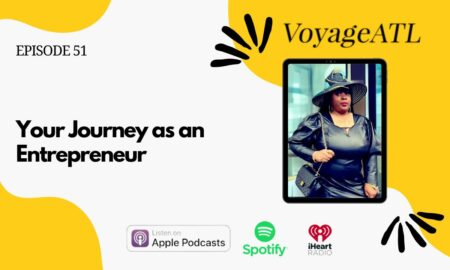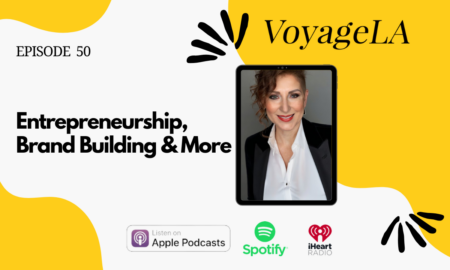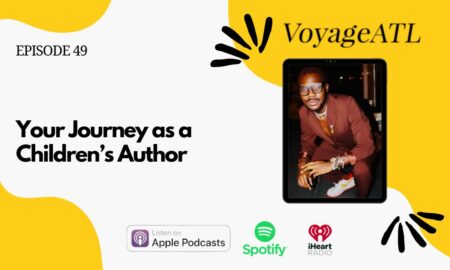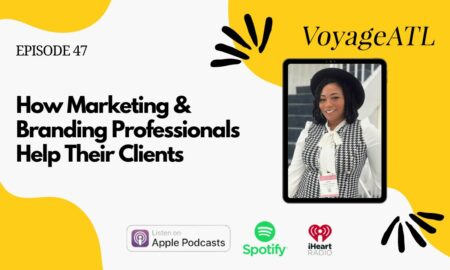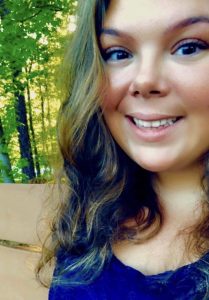
Today we’d like to introduce you to Erin Farrell.
Erin, let’s start with your story. We’d love to hear how you got started and how the journey has been so far.
While actively serving vulnerable populations, I noticed a dearth of trauma-based services. In many cases, individuals’ current situations stemmed from traumatic events, which had then acted as a catalyst and pushed them into their challenging circumstances. I began exploring trauma-informed care and healing-centered engagement as a solution to help our community. After running a few pilot programs, I was both stunned and inspired by the number of providers and volunteers interested in supporting this demographic. I went on to found Struggles to Strengths in October 2018.
The purpose of Struggles to Strengths is to address underlying trauma, rather than solely treat the symptoms (which is essentially putting a band-aid over the causes that lead to the behavior). We saw an opportunity to cultivate change and create sustainable improvements, which is paramount to our mission: Breaking the cycle of trauma. Over this two-year journey, I’m most proud of our community of volunteers and practitioners who truly care about and are committed to the wellness and success of our youth and families. I truly believe you’re as strong as your team, and I couldn’t be more proud of ours.
Great, so let’s dig a little deeper into the story – has it been an easy path overall and if not, what were the challenges you’ve had to overcome?
Without a doubt, the biggest challenge has been adapting to the “new normal” from the COVID-19 shutdowns and quarantines. We were forced to completely rethink and revamp how we provide services to our families. Additionally, with so many more families finding themselves in need, so many businesses and careers being impacted, and so many other organizations unable to provide their services to their typical extent, we found our services and programs were in higher demand than ever before. We needed to find ways to support the most dire needs of our clients.
Operationally, the pandemic has called us to reflect on our organizational strengths and challenges. For example, how do we maintain a consistent level of donors or volunteers when those very individuals are now struggling themselves? Our team has tirelessly found innovative ways to get our name, mission, and message out, adjust the look and feel of our programs, and stay true to our values and goals.
Please tell us about Struggles to Strengths.
Struggles to Strengths is a 501(c)3 nonprofit charity located in Atlanta, Georgia. We serve exposed and vulnerable families are recovering from long-term and recurring trauma through trauma-informed care and healing-centered engagement. Our goal is to cultivate wellness, resilience, and self-sustainability.
All of our families live 125% or more below the poverty line. They reside in shelters or income-based housing programs and regularly confront issues of gang violence, food deserts, poorly maintained housing, and underfunded and overcrowded schools. They battle trauma from experiencing homelessness, domestic abuse, losing a parent to terminal illness or incarceration, severe mental illness and addiction, gunshot wounds, and more. Our families are incredibly special people who are working hard to transform their realities. We focus on providing improvement to everyday life, removing the hurdles to healing and the ongoing trauma; however, we can, while also providing opportunities for inclusion, empowerment, and formation of identity beyond trauma.
When the pandemic hit, the call to empower trauma impacted-families to break the cycle of poverty and build a sustainable, healthy life was renewed. Of course, we continued providing the essentials for families, the basics needed to merely exist-food, household items, copays for medication, and more. But our families needed more than just supplies. We uncovered a particular area of marginalized and impacted people that seemingly have no support-pregnant women, especially low-income pregnant women in high-risk pregnancies.
This summer, we began the process of supporting these high-risk, impoverished pregnant women with a series of “COVID Community Baby Showers.” We provided diapers, pack-n-plays, clothing, formula, diaper bags, bottles, swings, lotion, postpartum care items, and more. But that wasn’t enough. We kept finding our moms needed more-they needed food, they needed clothing, but most importantly, they needed support. They needed people in their corner. They needed advocates. They needed to know they were going to be okay.
This overwhelming need created two new programs within Struggles to Strengths – our MOM Squad Program and Family Advocacy Program both focused on empowerment, wrap-around holistic care, and support. Our Maternal On-Site Mentorship Program (MOM Squad) supports our most vulnerable moms through the prenatal to postnatal transition. In Phase 1, each mom receives a “squad” of volunteers, composed of a lead advocate, a food advocate, a doula, an in-home advocate for laundry and resource support, and more. This 3-month phase begins with birth (accompanied by one of our Black doulas, if so desired). Phase 1 is overseen by our Program Manager, who organizes our volunteers and tracks impact and resources.
The MOM Squad Program serves a capacity of five mothers at a time, in order to maintain our hands-on approach. Since every one of our mamas has been living through back-to-back traumatic circumstances, we provide a safe, quiet place to participate in virtual trauma-informed therapy. In addition to therapy, some moms need temporary bill relief; some moms need a supportive place to stay for a few days; some moms need a daily mental health check-in with an advocate. Some moms need legal support, as we, unfortunately, continue to see a rise in malpractice and medical mistreatment within our Black community. We are extremely cognizant that each mother has unique, varying needs depending on her individual situation.
The MOM Squad Program feeds directly into our Family Advocacy Program, or MOM Squad Phase 1. This is designed to gradually release responsibility while still addressing needs, allowing families who have already received three months of support a chance to move forward more independently. In this program, each family is assisted by an advocate to help find solutions for their needs as well as communicate those needs with us reducing feelings of shame and emotional labor.
In addition to these mothers, Struggles to Strengths has had a long-standing focus on our youth. Quarantine and social distancing may have shifted our programming plans, but it has had a tremendous impact on our youth who have not been able to relax outside for over six months. And I don’t say that lightly – gang initiations are at an all-time high in their neighborhoods, and they are not allowed outside.
This need led to the creation of our Teen Learning Pod. We have a small group of youth, ages 13-18, who we transport to our space every day to do their virtual learning schoolwork. While on campus, we provide two square meals and ample snacks, which are not a guarantee at their homes. We have a dedicated staff of volunteers who act as instructors and educational coaches. This safe, welcoming space is imperative to our teens’ mental health and gives us a chance to continue our youth programming through enrichment activities including trauma-informed therapy, college counseling, music, art, photography, jewelry making, dance, gardening, cooking, life skills courses, and mentorship.
We have several other ways we help these communities, including birthday parties, holiday parties, movie nights, day trips, emergency food and medical assistance, childcare, job placement, budgeting classes – all crucial events and life skills needed for individuals to build the bridge between where they are and where they want to be.
Is there a characteristic or quality that you feel is essential to success?
I think for me, my success has been rooted in my ability to communicate. I will forever be in the debt of a high school AP Lit teacher who opened my world to concepts like syntax, pathos, ethos, and logos and truly just showed me the power of being able to communicate effectively.
Fast forward to college, and my intellectual world was forever changed my freshman year at Oglethorpe University by embarking on rhetoric studies with Dr. Anne Rosenthal. She truly taught me not only the importance of personal narratives but how to translate those stories into vantage points of empathy and understanding. I would not have had any of the success I’ve been fortunate enough experience over the last (almost) two years without utilizing that skill set. I am very proud of the team I’ve built and their unique skill sets and impact. The ability to communicate is a common thread that ties us together but also propels us forward.
Contact Info:
- Website: www.strugglestostrengths.org
- Phone: 4047479240
- Email: admin@strugglestostrengths.org
- Instagram: https://www.instagram.com/strugglestostrengths/?hl=en
- Facebook: https://m.facebook.com/strugglestostrengths/



 Image Credit:
Image Credit:
Struggles to Strengths Teen Photographers
Najee Aadil, Tion Thomas, Nick Payne
Suggest a story: VoyageATL is built on recommendations from the community; it’s how we uncover hidden gems, so if you or someone you know deserves recognition please let us know here.















